
The Eurasian continent is not just a huge geographical area. It is a space of strategic routes, dialogues and opportunities for economically developed and developing countries that constantly interact with each other. However, in the context of rapid transformations and globalization of international relations, the effectiveness of bilateral relations is assessed not in isolation, but as an integral part of large-scale processes of rapprochement between regions.
Due to such criteria, the gradually emerging format of "Central Asia - European Union" is of particular importance, political and economic interaction between which is carried out through the member countries of these two large regional entities.
It does not prevent Turkmenistan and Poland, located on opposite flanks of the Eurasian space, from overcoming geopolitical turmoil and acting as legitimate representatives of two macro-regions, which are Central Asian-EU, striving not only for pragmatic interaction, but also for increasing their role in the emerging multipolar world.
Contribution of Think Tanks to Partnership Promotion
Centers for strategic research in Central Asian countries play an important role in analyzing and forecasting political, economic and social processes in the region.
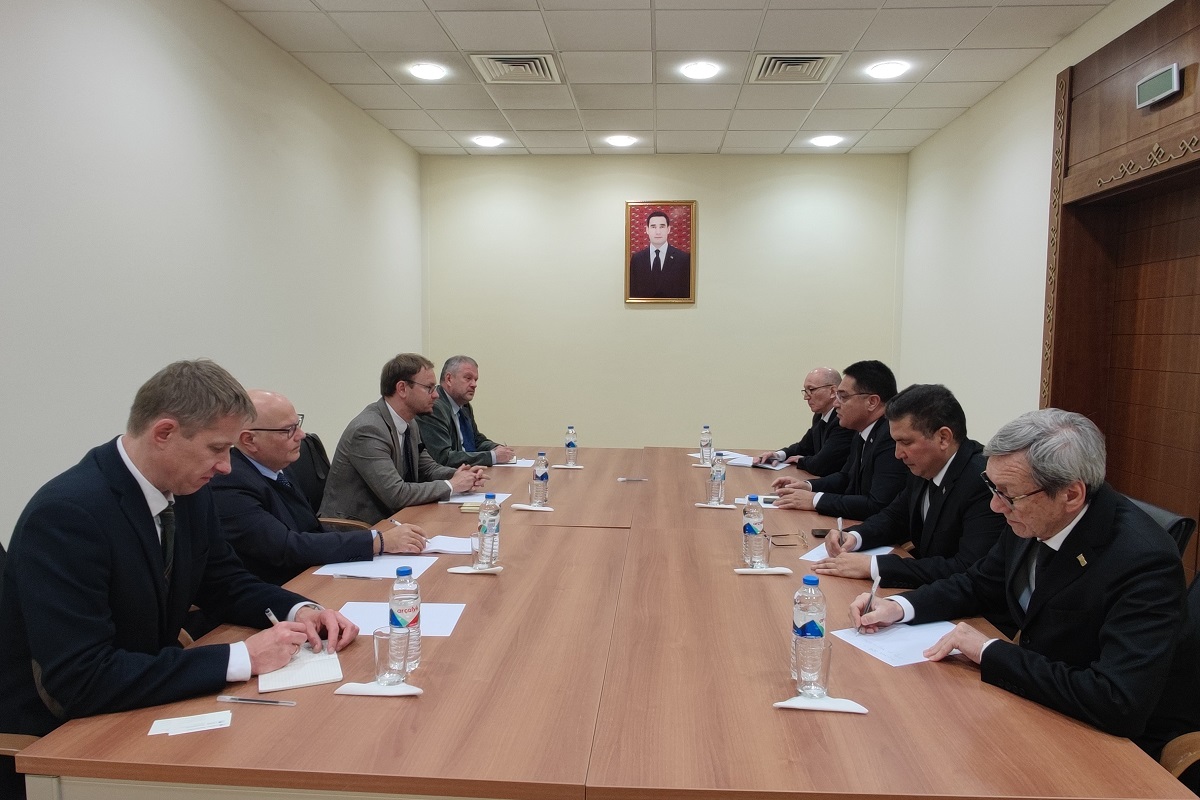
In November last year, a Polish delegation headed by Director of the Center for Eastern Studies (OSW) Wojciech Kononczuk arrived to Ashgabat on a working visit.
This Center was founded in 1990 to meet Poland's needs for analytical research on the processes that took place in the Soviet Union and then in the states that emerged after its collapse.
Poland is of interest to Central Asia, including Turkmenistan, as a country that has been a member of the European Union for more than two dozen years (as a result of the enlargement of the EU in 2004, ten countries joined at once, mainly from Eastern Europe - Hungary, Latvia, Lithuania, Slovakia, Slovenia, the Czech Republic and Estonia, as well as Cyprus and Malta).
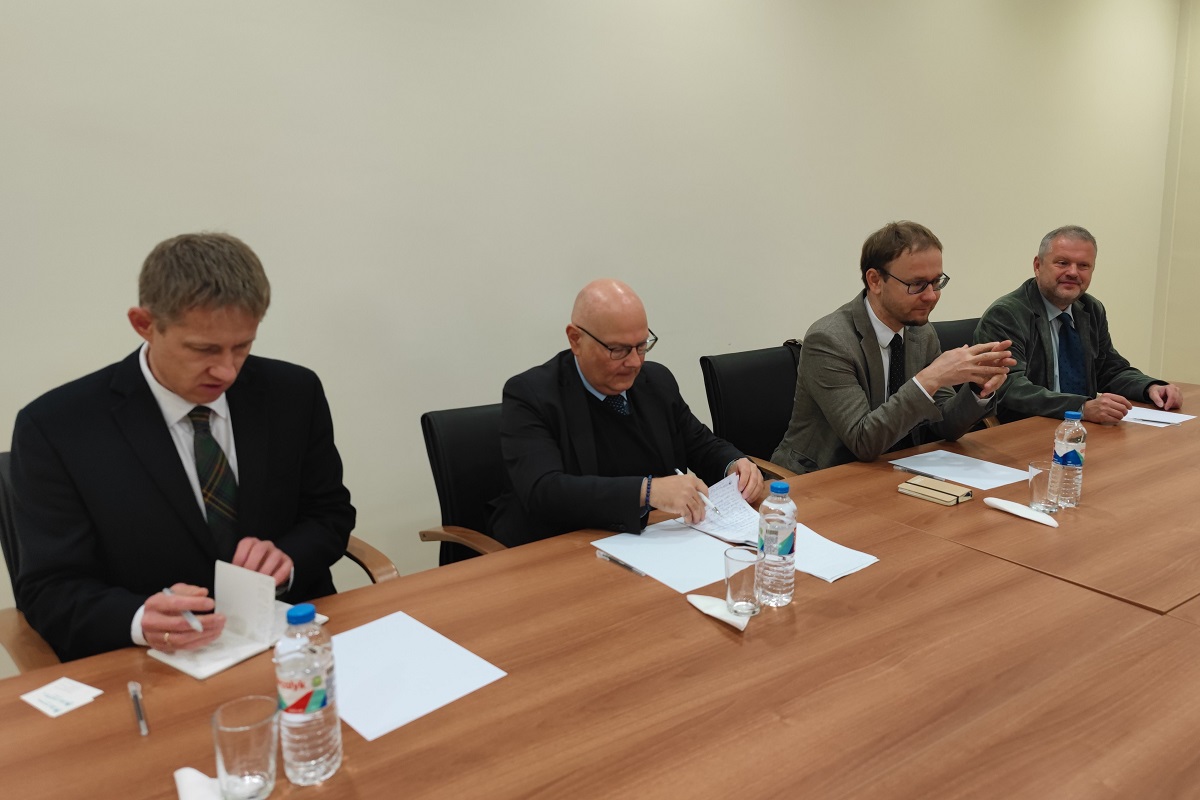
Today, Poland has confirmed its 6th place among the European Union countries in terms of economic development, which it occupied last year, according to the Eurostat rating.
On October 7, 2024, a meeting with a delegation of the Center for Eastern Studies was held at the Kazakhstan Institute for Research Strategies (KIRS) under the President of the Republic of Kazakhstan. The parties discussed regional challenges and their implications for Central Asian countries, and envisaged cooperation between Europe and Kazakhstan in particular, as well as between the EU and Central Asia in general.
As noted by KIRS Director Erkin Tukumov, Kazakhstan is interested in cooperation with the EU in the field of technological and industrial economy, in the creation of new production capacities and jobs, education and training of personnel for the innovative economy.
In Tashkent, on March 19 last year, the International Central Asian Institute, together with the independent analytical center ENC based in Brussels, organized the first EU-CA Think Tanks Forum.
The forum, timed to the first European Union – Central Asia summit, was also attended by analysts and experts from Poland with the aim of developing proposals for deepening cooperation taking into account Polish influence in the European Union. At the same time, the “Tashkent Platform” was launched – a platform for expert dialogue, where Poland proactively contributed to the formation of recommendations before the summit.
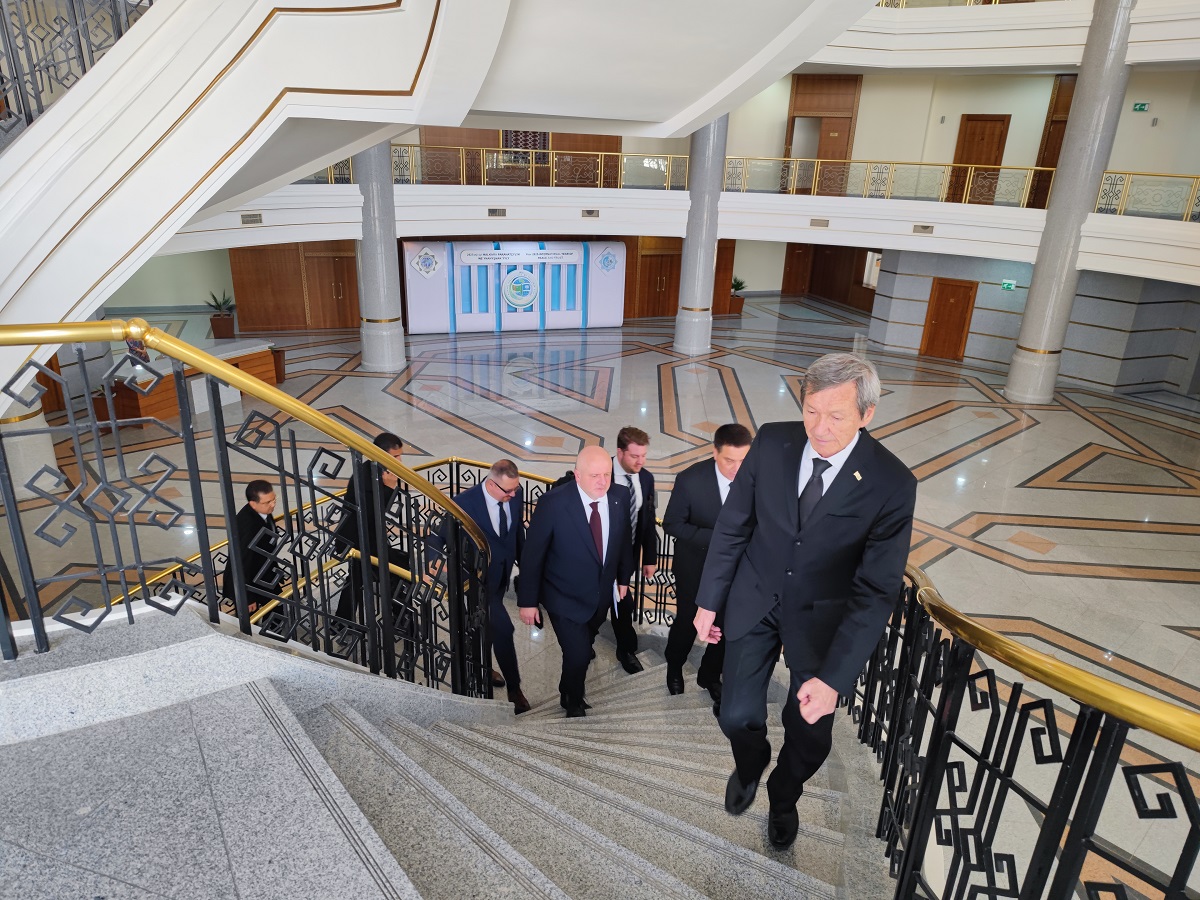
One of the last discussions on the Central Asian countries – Poland vector took place in Ashgabat between employees of the Center for Strategic Studies of the Institute of International Relations of the Ministry of Foreign Affairs of Turkmenistan and a delegation of Polish experts already well-known in the region – head of the Polish Sejm Committee on Foreign Affairs Pavel Koval and his assistant Krzysztof Kubon, who were accompanied by the consul of the Polish Embassy in Azerbaijan Michal Grecilo.
This meeting can be discussed in more detail, as it is typical in a long series of similar meetings.
Despite the fact that Turkmenistan, unlike other states, has a status of neutrality confirmed by three UN resolutions, other neighbors in the region in the international arena also try to maintain a middle position between Scylla and Charybdis of global centers of influence.
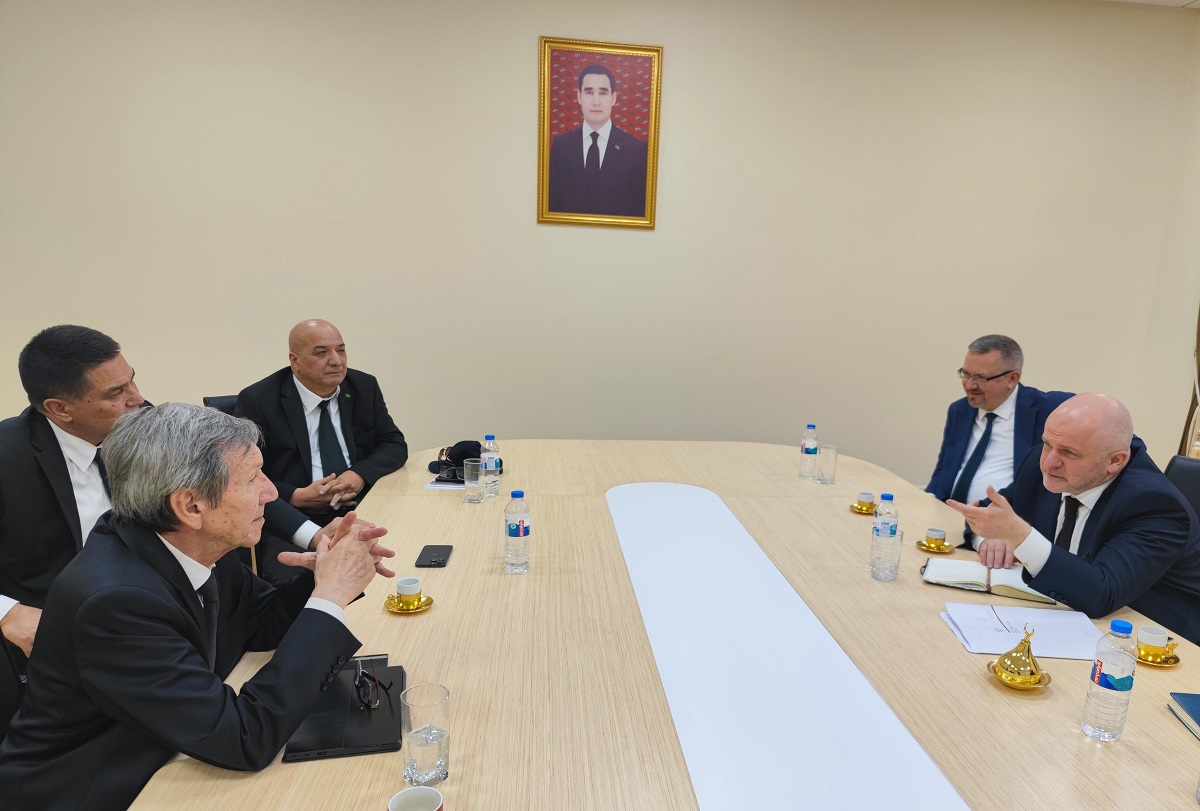
Neutrality is the Unshakable Foundation of Turkmenistan's Policy
During the meeting with the delegation of the Polish Sejm, interaction at the regional and global levels was touched upon.
An important place in the discussion was occupied by the topic of the neutral status of the Turkmen state, which is given a special role in the process of active participation in the peaceful resolution of international conflicts. Thus, negotiations between representatives of various states aimed at resolving regional disputes have been repeatedly held on the territory of Turkmenistan.
Neutrality and non-participation in armed conflicts does not mean Turkmenistan's self-removal from the acute problems of our time. This status completely determines the position of Turkmenistan, which uses its political opportunities for the non-violent resolution of contradictions and confrontations between states.
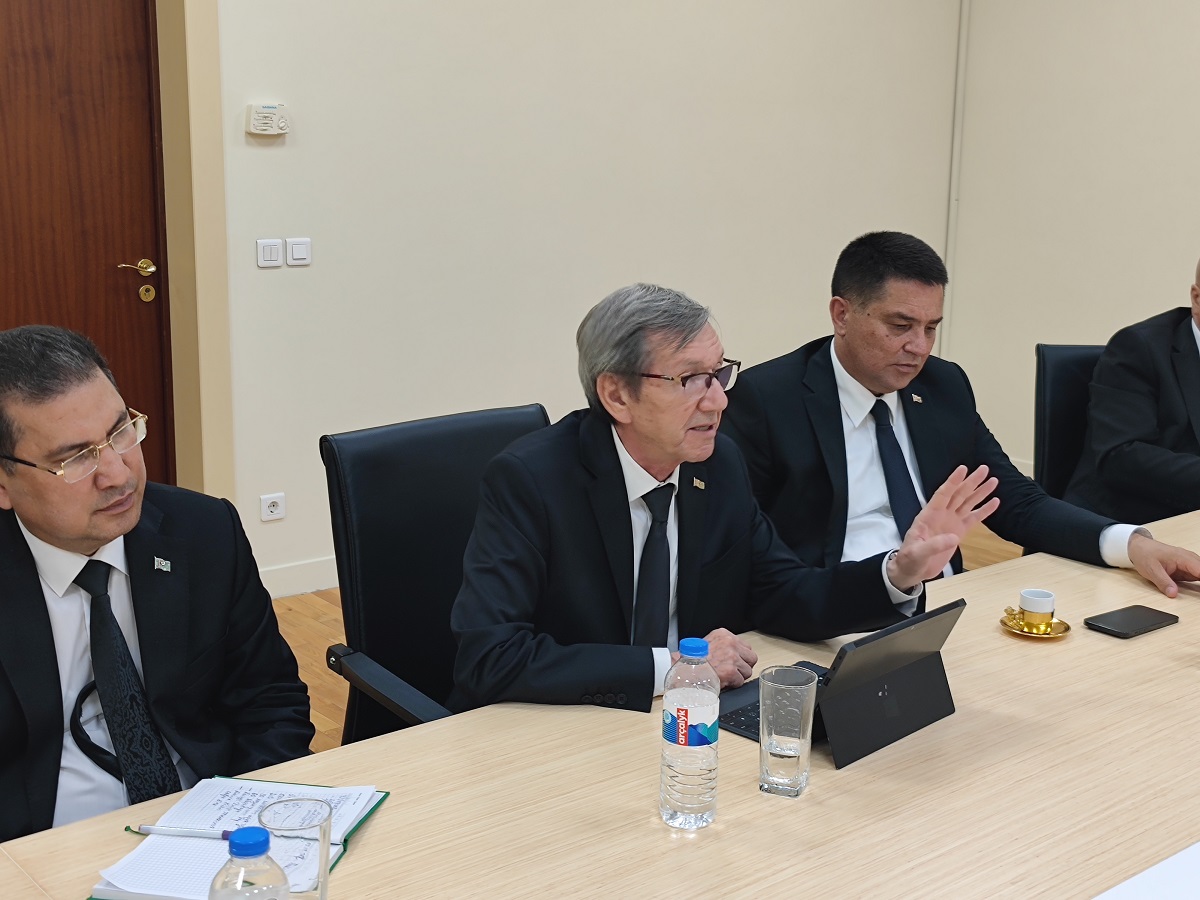
In general, the status of permanent neutrality contributes to strengthening security in the region. Turkmenistan plays an active and positive role in developing peaceful, friendly and mutually beneficial relations with the countries of the region and other countries of the world.
A number of UN documents emphasize that the capital of Turkmenistan, Ashgabat, has actually become one of the centers of peacekeeping, a venue for peace talks and major international forums.
This is a manifestation of the constructive feature of Turkmen neutrality, which consists in its focus on ensuring not only internal but also external stability, readiness to contribute to any peacekeeping processes, dialogue in the name of peace and harmony.
Poland, as experts from Warsaw said, highly appreciates the priorities of Turkmenistan's foreign policy, based on the principles of neutrality, three times approved by the world community in UN General Assembly resolutions.
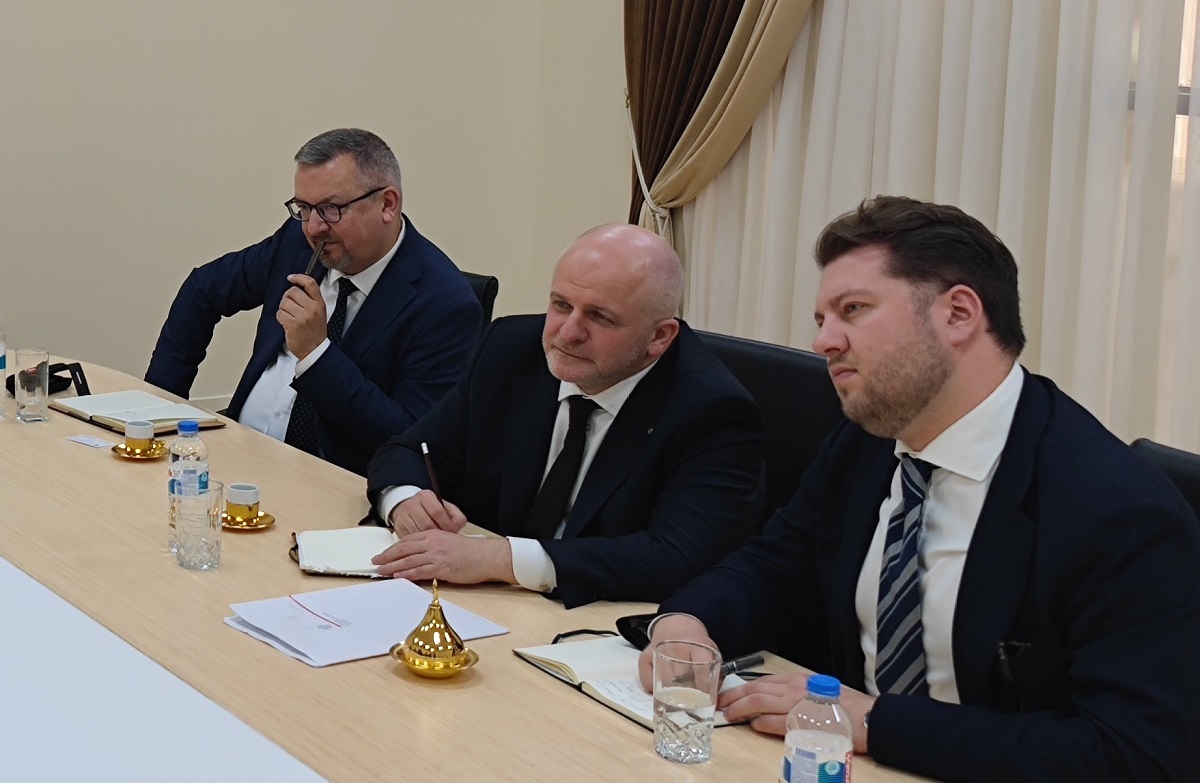
From Bilateral to Interregional Dimension
Poland is an active participant in the European Union. Warsaw influences the development of pan-European policy, including relations with Central Asia, through Brussels.
Turkmenistan is strengthening its participation in Central Asian processes, while remaining true to its policy of positive neutrality, which, as practice has shown, does not limit, but rather enhances the country's opportunities for interregional partnership.
Turkmen-Polish relations go beyond the bilateral format, becoming an important part of the Central Asia-European Union dialogue. And understanding this context gives special prospects to cooperation between Ashgabat and Warsaw.
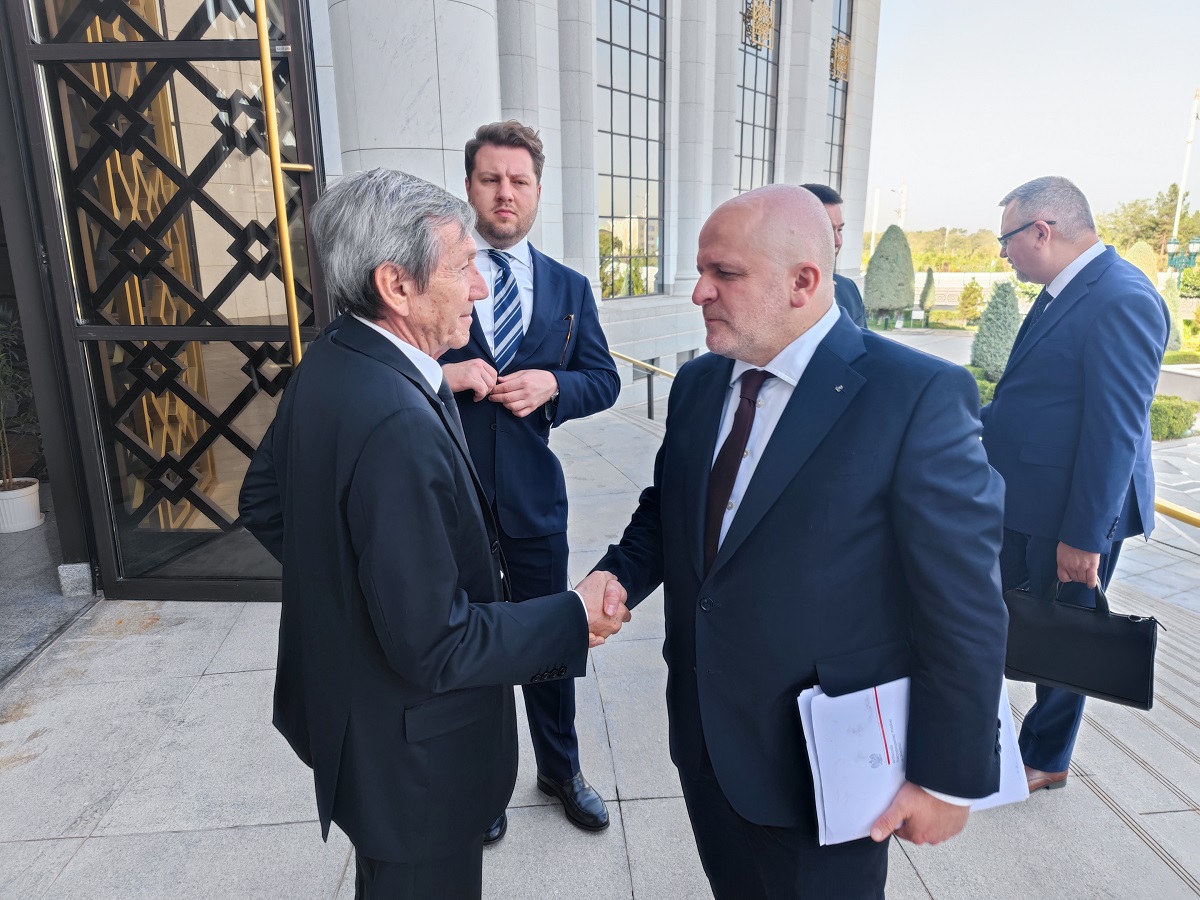
Nowadays, a regular political dialogue is maintained between Turkmenistan and Poland, including interparliamentary and interdepartmental consultations, including those between the Ministries of Foreign Affairs.
Thus, in June last year, Warsaw held consultations at the level of deputy foreign ministers of Turkmenistan and Poland. Its result was the signing of a cooperation program between the Ministries of Foreign Affairs of the two countries, as well as a proposal to study the possibility of creating a working group on economic cooperation.
At the same time, Deputy Foreign Minister Akhmet Gurbanov, who headed the Turkmen delegation, held a meeting in Warsaw with Chairman of the Committee of the Organization for Cooperation of Railways Miroslav Antonovich, during which the parties discussed in detail the prospects for bilateral cooperation in the transport sector.
Four months later, already in Ashgabat, consultations with the Polish delegation were held at the Turkmen Foreign Ministry, during which the parties confirmed their mutual intention to further intensify cooperation, especially in the trade, economic, transport and logistics spheres.
Just the other day, during a meeting between Deputy Foreign Minister of Turkmenistan Myahri Byashimova and Chairman of the Sejm Committee (lower house of parliament) of Poland Pavel Koval, the parties, noting the strengthening of cooperation within the EU, considered the possibilities of organizing business contacts and participating in joint exhibitions.
At the same time, a meeting with the Polish delegation was held in the Mejlis of Turkmenistan, during which the topics of gender equality, youth policy, education, science and social protection of the population were touched upon. The prospects for exchanging experience in the field of lawmaking were also discussed.
Over the past year or two, the Polish side has strengthened ties with Central Asia through active participation in expert-level forums (IICA–EU), publications and analysis (DGAP, Centre for Asian Affairs), and academic exchanges between universities and research centers.
In early December last year, Deputy Minister of Foreign Affairs of Kazakhstan Roman Vasilenko held a meeting with Chairman of the Foreign Affairs Committee of the Polish Sejm Pavel Koval, during which they discussed the tasks of expanding political and trade-economic cooperation, strengthening interparliamentary ties, interaction within international organizations and other issues.
The 11th meeting of the EU-CA High-Level Dialogue on Political and Security Issues was held in Brussels on June 5 last year. The participation of the Turkmen delegation in this event emphasized the country's commitment to regional cooperation and its desire to strengthen peace and stability through international diplomatic efforts.
On March 27, the 20th Central Asia-European Union Ministerial Meeting was held in Ashgabat, where the heads of the foreign ministries of the countries of the region and the EU discussed a wide range of issues of multilateral partnership. The ministerial meeting resulted in the adoption of a Joint Communiqué.
The most important event within the region took place on April 4, 2025 – the first Central Asia-European Union Summit. The summit, which was held in Samarkand, was attended by the leaders of the five Central Asian republics and the top leadership of the EU – President of the European Council António Costa and President of the European Commission Ursula von der Leyen.
Following the summit, two documents were adopted – the Joint Declaration (providing for the establishment of a strategic partnership between the two regions) and the Declaration on cooperation in the field of critical minerals.
President Serdar Berdimuhamedov highly appreciated the potential of partnership between Central Asia and the European Union, defining the economy, investment, energy, transport and trade as priority areas of cooperation in this format.
Thus, Poland is not only a participant, but also an active supporter of strengthening ties between the European Union and its eastern and southern neighbors. Its historical experience, as well as its geopolitical position at the junction of Europe and Eurasia, allow it to act as a kind of "conductor of interests" of Central Asian countries in European institutions.
In terms of economic cooperation, Polish companies are interested in projects in energy, construction and resource processing.
Cooperation in the field of agriculture and equipment supplies deserves special attention: in previous years, Polish manufacturers imported specialized machinery and equipment to Central Asia, which became an example of the practical benefits of partnership. Today, the Polish company Pronar could participate in the modernization of the agricultural sector, supplying in-demand irrigation equipment in the region.
Poland consistently supports the expansion of EU cooperation with Central Asia, including the implementation of the EU Strategy for Central Asia, adopted in 2019 and updated with an emphasis on sustainable development, green economy, digitalization and joint work in the humanitarian direction.
With its modern industrial and scientific-technical base, Poland can become a source of practical solutions for Central Asia - from smart farming to environmentally friendly technologies, as well as provide logistics infrastructure for the delivery of goods from Central Asia to EU markets through Eastern European transport hubs.
Joint humanitarian activities are no less important. Polish universities accept students from Central Asia, including from Turkmenistan. Cultural events, exhibitions, conferences and festivals aimed at expanding mutual understanding between peoples are held. And such contacts create a sustainable humanitarian foundation on which long-term trust can be built. Turkmenistan's wealth of natural resources and Poland's technological capabilities create potential for synergies that could not only bring economic benefits but also accelerate the modernization of both sides.
Instead of a Conclusion: On the Potential for Interaction Between CA and the EU
For Turkmenistan, as well as for other countries in the region that have the richest natural resources and are striving for technological modernization and economic diversification, partnership with the EU opens up significant opportunities.
Turkmen-Polish cooperation can become a kind of interaction model, within which the EU gets a reliable player in Central Asia, and Turkmenistan gets a window into the European space. The development of digitalization, green technologies, water and energy sustainability is particularly relevant in this context. Poland could become an active participant in pilot projects in these and other areas, contributing to the practical content of interregional contacts.
In general, cooperation between Central Asia and the European Union is developing in several key areas, and certain results have already been achieved in economic and political interaction. In particular, regular meetings and forums at the ministerial level have increased the effectiveness of political dialogue and coordination of actions.
The Central Asian countries and the EU have achieved some results in trade relations, especially in the sphere of energy exports, mineral resources and agricultural products. Although it is necessary to note the imbalance in trade operations - Central Asia exports to the European Union mainly raw materials, and imports finished products and equipment.
At the same time, despite the diversity of exported goods, most countries in the region remain dependent on a small number of trading partners. And this is the area that the Central Asian countries need to work on purposefully.
European companies are showing interest in investing in the region's energy, transport and infrastructure projects. For example, in the development of such corridors as the Trans-Caspian International Transport Route, which connected Europe, Central Asia and China, significantly strengthening the ties between the two parts of the Eurasian continent.
Both macro-regions support security initiatives through the implementation of joint projects in the fight against terrorism, drug trafficking and other challenges. Along with this, the European Union promotes scientific, cultural and educational exchange programs in Central Asia, which helps strengthen mutual understanding between peoples.
Ultimately, it can be stated that, despite the unfavorable impact of geopolitical instability, as well as different levels of economic development (which in individual episodes may uncritically affect the effectiveness of cooperation), the Central Asia - European Union format has acceptable potential for further development, especially if coordination between all participants in the process is strengthened.
Bekdurdy AMANSARYEV,
Center for Strategic Studies of the Institute of International Relations of the Ministry of Foreign Affairs of Turkmenistan
